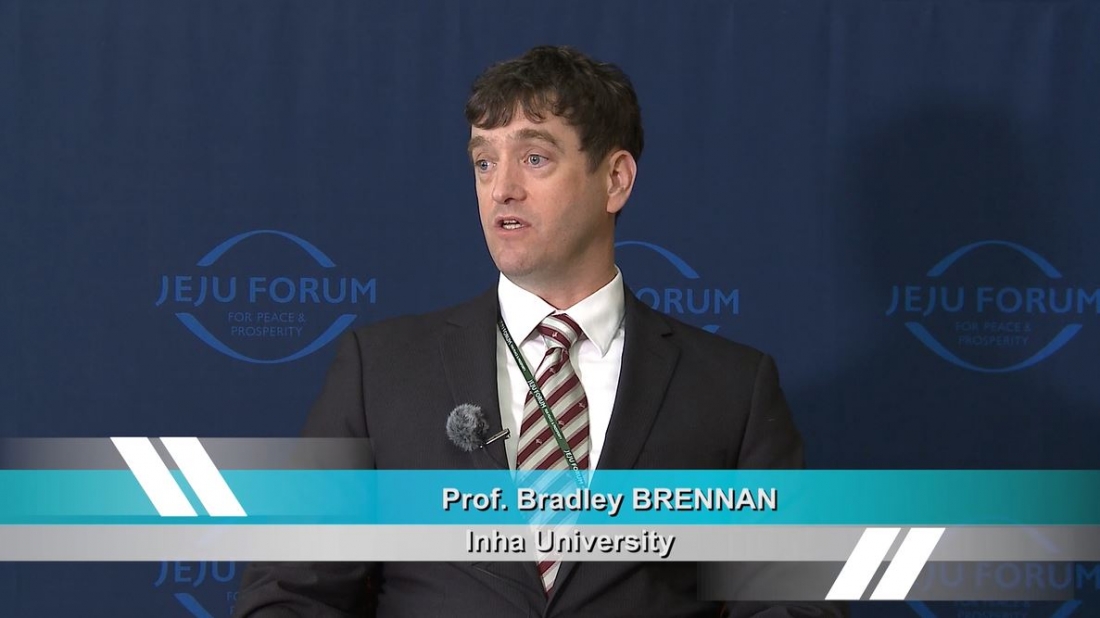
[New Horizon for Northeast Asian Tourism: Increasing Inbound Flows through Trilateral Cooperation]
Q1. Could you briefly introduce the idea of multi-destination trips, particularly in terms of the forum’s theme, “Asia’s new order and cooperative leadership”?
Multi-destination trips from North America and the EU to China, Japan, and South Korea (CJK) provides a wonderful opportunity to promote shared understanding and people-to-people networks. Joint CJK efforts should help to reduce costs through shared marketing and should help to streamline marketing, branding, and promotional activity
In my presentation, I highlight youth and education tourism market segments for trilateral destination trips because these are the markets best able to visit all three countries. The youth travel market is a rapidly growing market, projected to make up 25 percent of travelers in the near future. These tourists are 15 to 30 years old, and want experience overseas. They’re more interested in life experiences rather than making money. In the United States, 20 percent of international arrivals to the US are this youth market totaling about US$194 billion annually. These tourists usually travel one-and-a-half times more often than a other tourists and spend about $1,000-6,000 per trip.
Q2. Although South Korea, China, and Japan share a common culture based on history, religion, and life pattern, political tensions in Northeast Asia continue. Could you explain how multi-destination trips might contribute to building peace in the region?
People-to-people interactions are exactly how greater understanding between nations happens on the personal level rather than on the political level. At the end of the day, we as humans can relate to everyday struggles that everyone faces, like raising children, providing for our families, enjoying our lives, and just peacefully existing with our neighbors.
Concerning CJK countries, I feel that the youth travel market and the educational market are overall the best market segments to focus on for trilateral trips. The reasons are simple: these multi-destination trips are usually very expensive and can take two to three weeks. If CJK focuses on the student and educational travel market segments they can attract well-educated travelers who on average travel 1.5 times more than leisure travelers.
Another smaller niche market within the youth travel market would be Executive MBA (EMBA) and MBA study missions. These study trips focus on business site inspections, cultural understanding, and cross-cultural business communication so that business students can better understand the economies, business practices, and cultural norms of each country.
[On Peace]
Q1. In what way do scholars and researchers contributing to peace promotion?
Discussion among political leaders, academics, government officials, and the private sector help to foster a better understanding between nations. These forums bring together a diverse group of individuals and let them interact and hear from experts.
In terms of travel for peace promotion, more research on travel market segments would help scholars glean greater insight into who are the best possible candidates for CJK travel. This could include in-depth research into new markets, such as university alumni group travel to cultural heritage sites in each country or cruise ship travel that stops at ports in each of the three countries.
Q2. In what way do multilateral talks such as Jeju Forum contribute to peace promotion?
The discussions at the Jeju Forum helps to push forward the agenda for creating a longer-lasting peace with a focus on how we, in China, Japan, and South Korea, can work together in many areas. This dialogue among upper-level politicians can spur conversations from many different perspectives and it can help to highlight the possible problems that current political administrations face. The fact that there are so many former heads of state and possible future heads of state helps to reinforce the good-will towards the members of this new order in Asia. The meeting also strengthens trilateral ties at a time when regional tensions are high by focusing on shared threats and concerns for the region.
Q3. What do you think of promoting peace by educating the public and the next generations?
I think if the the national tourism organizations of each of these three countries—China, Korea, and Japan—focus on how they can work together. They’re still in the formative stage, but if they have a clear goal of how they can increase the number of tourists to this region.There are two possible goals. One goal focuses on increasing the number of tourists for financial reasons. This might include increasing cruise travel that includes tours of all three countries. The other goal focuses on promoting understanding of each others’ cultures, perhaps even in service of promoting peace. The latter goal benefits from targeting the students from North America and Europe.
CJK countries could design programs that promote the three countries in one study program. For example, if CJK created a trilateral educational semester—with students staying about five weeks at a university in each country for a one-semester trip or three semesters (one full year with spring, fall, and summer terms)—students could learn about each country’s history, culture, and politics in one extended trip. They would help integrate the three countries.
* Prof. Bradley BRENNAN is a professor of Inha University
Prof. Bradley BRENNAN describes how multi-destination trips from North America and the EU to China, Japan, and South Korea (CJK) provide an opportunity to promote shared understanding and people-to-people networks. He highlights youth and education tourism market segments for trilateral destination trips because these are the markets best able to visit all three countries. He also suggests another smaller niche market, Executive MBA (EMBA) and MBA study missions.
People-to-people interactions are exactly how greater understanding between nations happens on the personal level rather than on the political level, says Prof. BRENNAN, it helps us as humans relate to everyday struggles that everyone faces. In terms of travel for peace promotion, more research on travel market segments would help scholars glean greater insight into who are the best possible candidates for CJK travel.
* Interviewed on May 25, 2016 (Jeju Forum 2016)
Posted on October 20, 2016
